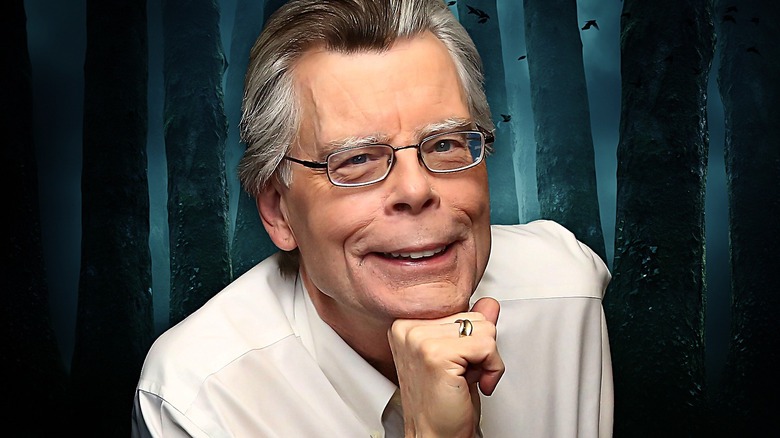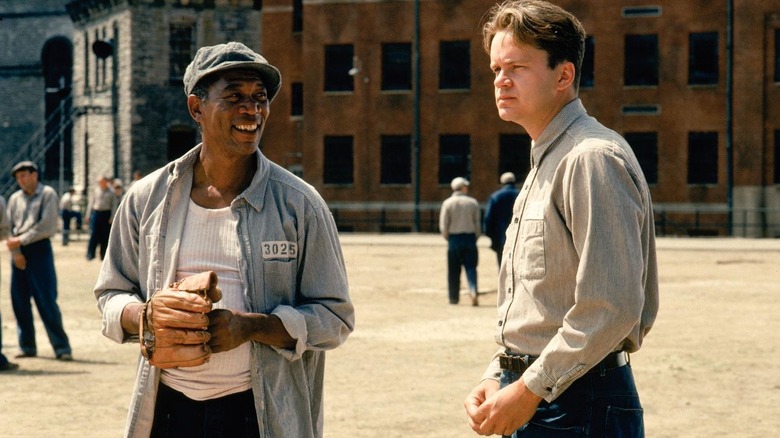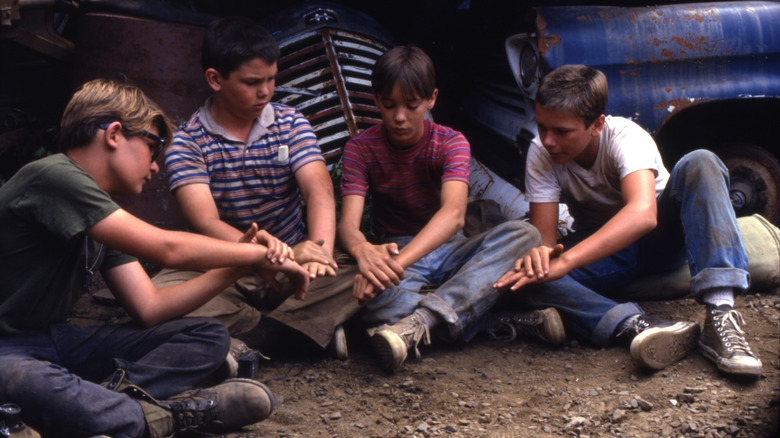Stephen King’s Two Favorite Movie Adaptations Of His Books
Stephen King is the undisputed maestro of horror. He might not be your personal favorite writer who’s actively working in the genre, but he has unquestionably influenced your fave to some degree in the half-century since the release of his first published novel, “Carrie,” in 1974 — not to mention the classic Brian De Palma film adaptation that followed only two years later.
He’s also something of an under-sung talent when it comes to telling stories that aren’t strictly of the horror variety. For all their distressing moments, Stephen King movies like “Stand By Me,” “Dolores Claiborne,” and “The Shawshank Redemption” (like their source material) are more character dramas than unfiltered horror narratives. But even without memorable metaphors like a child-eating clown creature or a father being compelled by ghosts to axe-murder his family, these stories paint complicated portraits of humankind and our shortcomings to rival those of the author’s tales of terror. Something like “Mr. Harrigan’s Phone,” one of the many King stories that’ve been turned into Netflix movies, would also work just as well as an unsettling coming-of-age drama about an unconventional friendship if you left out the explicitly supernatural aspects entirely.
King himself seems to appreciate these types of Stephen King movies as much as those of the clear-cut horrifying variety. When Deadline asked him about his personal favorite adaptation of one of his books in 2016, he actually cited two of them (both of which, as you’d expect, made his own list for the seven best Stephen King movies overall as well).
The Shawshank Redemption
Frank Darabont got his start in the ’80s writing horror films like “A Nightmare on Elm Street 3: Dream Warriors” and “The Blob.” He also tried his hand at directing for the first time by turning King’s short story “The Woman in the Room” into a short film in 1983 as part of King’s “Dollar Baby” program, which allowed up-and-comers to adapt his work for the price of a single dollar before the initiative was shut down in 2023. As such, it shouldn’t come as a huge surprise that Darabont has shown a knack for bringing King’s writing to life on the big screen. What’s more impressive is the variety of Stephen King stories that Darabont has turned into acclaimed films, ranging from the highly-emotional prison dramas “The Shawshank Redemption” and “The Green Mile” to the ultra-bleak monster movie “The Mist.”
“Shawshank,” which is based on King’s novella “Rita Hayworth and Shawshank Redemption,” is generally regarded as the best of Darabont’s King adaptations, and it’s hard to argue with that consensus. The picture flopped upon its initial theatrical release in 1994, where it found itself being overshadowed by the combined might of Robert Zemeckis’ box office behemoth “Forrest Gump” and Quentin Tarantino’s buzzed-about crime flick “Pulp Fiction.” 30 years later, though, it’s “Shawshank” that’s better stood the test of time. Darabont’s drama about the decades-long friendship between inmates Andy Dufresne (Tim Robbins at his most huggable) and Ellis Boyd “Red” Redding (Morgan Freeman in perhaps his greatest role) is a lot like “It’s a Wonderful Life” in that it’s willing to go to some really dark places, which makes its uplifting and unapologetically sentimental moments feel earned rather than phony or manipulative.
“[…] I love ‘The Shawshank Redemption’ and I’ve always enjoyed working with Frank,” King told Deadline. “He’s a sweet guy, Frank Darabont.”
Stand By Me
Rob Reiner was operating at the height of his powers as a director in the ’80s, helming “This Is Spinal Tap,” “Stand By Me,” “The Princess Bride,” and “When Harry Met Sally…” within a five-year (!) span. He would go on to direct another celebrated Stephen King movie just a year later with 1990’s “Misery,” which snagged Kathy Bates an Oscar for her performance as a mentally unwell fan who holds her favorite author captive. Both the film and the book it’s based on transparently tap into King’s anxieties about his real-life fame, and he’s made no secret of just how much he adores Reiner’s movie. It could’ve easily been his other favorite adaptation of his work too … if it wasn’t for “Stand By Me.”
Reiner’s 1986 drama, like “The Shawshank Redemption,” is so universally celebrated that it’s easier to dismiss it as being overrated. Yet, all it takes is a single revisit and you’ll quickly be reminded why “Stand By Me” is still considered the gold standard for coming-of-age movies. The ’50s-set story (based on King’s novella “The Body” and partially inspired by the author’s youth) follows four young friends as they set out to find the dead body of a local boy who went missing in what they, rather naively, believe will be a fun adventure — only to end up baring their souls to one another as they find themselves battling their personal demons on their way to looking upon the face of death itself (somewhat literally). It’s a great film that’s just as poignant and intense as it is funny and light-hearted. And what else is there to say about the wonderful performances by a young Wil Wheaton, Corey Feldman, Jerry O’Connell, and especially the late River Phoenix (in one of his most heartbreaking roles)?
King himself has admitted that “Stand By Me” made him incredibly emotional the first time he saw it, and it continues to resonate with him just as strongly to this day. As he simply put it, “And I love the Rob Reiner thing, ‘Stand By Me.'”

















Post Comment